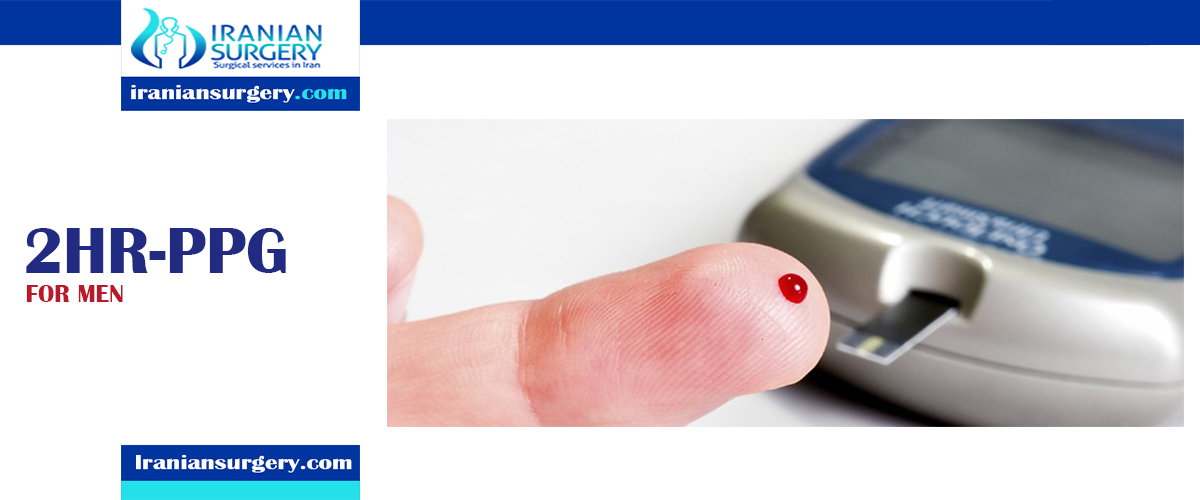2HR-PPG

Two-Hour Postprandial Glucose
Does this test have other names?
Glucose, postprandial; glucose, two-hour postprandial; two-hour PPG; two-hour postprandial blood sugar
What is this test?
This is a blood test to check for diabetes. If you have diabetes, your body doesn’t make enough insulin to keep your blood sugar in check. This means your blood sugar levels are too high, and over time this can lead to serious health problems including nerve and eye damage.
This test is done to see how your body responds to sugar and starch after you eat a meal. As you digest the food in your stomach, blood glucose, or blood sugar, levels rise sharply. In response, your pancreas releases insulin to help move these sugars from the blood into the cells of muscles and other tissues to be used for fuel. Within two hours of eating, your insulin and blood glucose levels should return to normal. If your blood glucose levels remain high, you may have diabetes.
Why do I need this test?
You may need this test if your healthcare provider wants to see if you have diabetes or another insulin-related disorder, especially if you have symptoms such as:
- Frequent urination
- Unusual thirst
- Blurred vision
- Tiredness
- Repeated infections
- Sores that heal slowly
If you’re pregnant, you may have this test to screen for gestational diabetes, diabetes that can develop during pregnancy. Treating gestational diabetes reduces the risk for health problems for you and your baby.
What other tests might I have with this test?
Your healthcare provider may order other tests to confirm or evaluate whether you have diabetes. These may include:
- Fasting blood glucose test. This measures the amount of sugar in your blood.
- A1C (glycosylated hemoglobin) test. This measures your average blood sugar level over the last 2 to 3 months.
- Glucose tolerance test.This measures your body’s ability to use sugar after drinking a standard amount in a sugary drink.
What do my test results mean?
Test results may vary depending on your age, gender, health history, the method used for the test, and other things. Your test results may not mean you have a problem. Ask your healthcare provider what your test results mean for you.
Test results vary by age and are usually measured in milligrams per deciliter (mg/dL). Normal results for the two-hour postprandial test based on age are:
- For those who do not have diabetes: less than 140 mg/dL
- For those who have diabetes: less than 180 mg/dL
If your blood glucose level is still high two hours after you’ve eaten, or if it is high one hour after a gestational diabetes glucose tolerance test, it could mean you have diabetes.
How is this test done?
The test is done with a blood sample. A needle is used to draw blood from a vein in your arm or hand.
Does this test pose any risks?
Having a blood test with a needle carries some risks. These include bleeding, infection, bruising, and feeling lightheaded. When the needle pricks your arm or hand, you may feel a slight sting or pain. Afterward, the site may be sore.
What might affect my test results?
Your test results might be affected if you:
- Smoke during the test period
- Are under extreme stress
- Eat a snack or candy after your meal and before you’re tested
- Are unable to eat the entire meal
- Exercise during the testing period
How do I get ready for this test?
You must fast for 12 hours before the test and then eat a meal with at least 75 grams of carbohydrates. After the meal, don’t eat anything else before having the test. Plan to rest during the two-hour waiting period, because exercise can cause blood sugar levels to rise. You may not have to fast if you’re pregnant.
Be sure your healthcare provider knows about all medicines, herbs, vitamins, and supplements you are taking. This includes medicines that don’t need a prescription and any illicit drugs you may use.
Medical Reviewers:
- Haldeman-Englert, Chad, MD
- Holloway, Beth Greenblatt, RN, MEd

